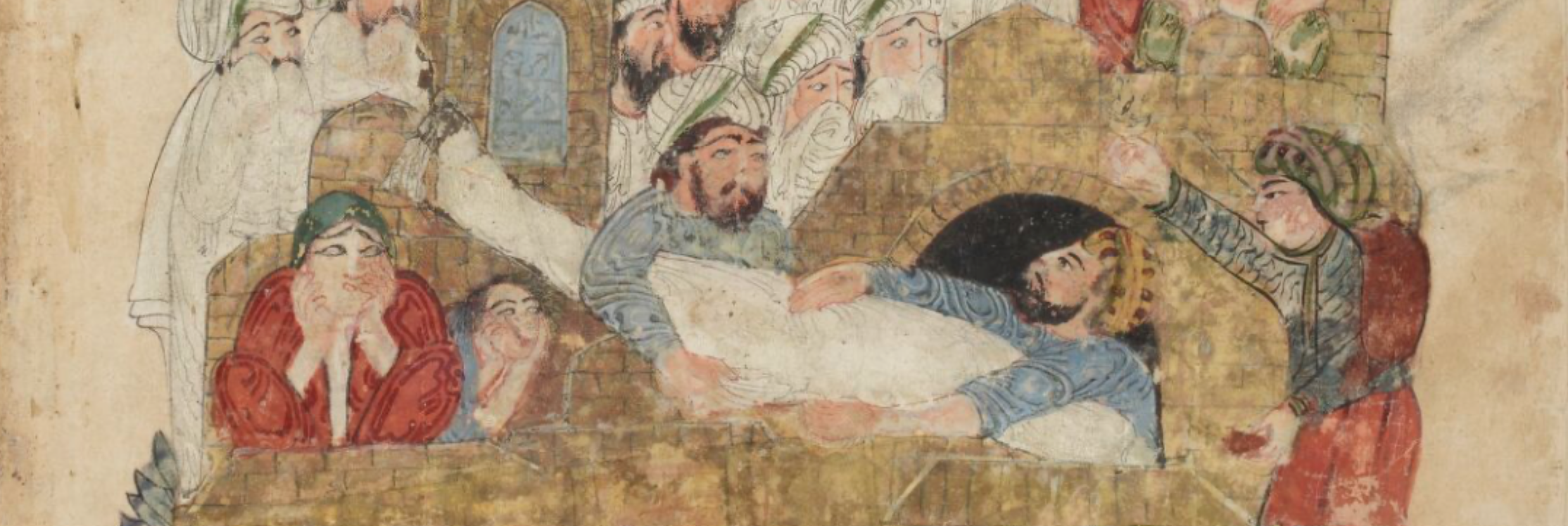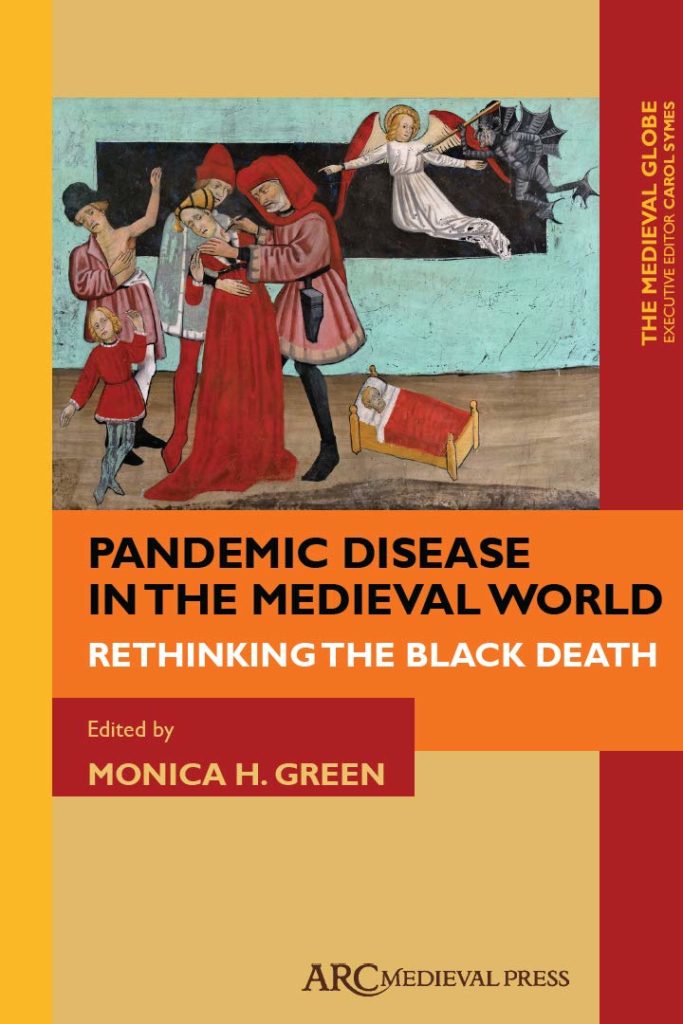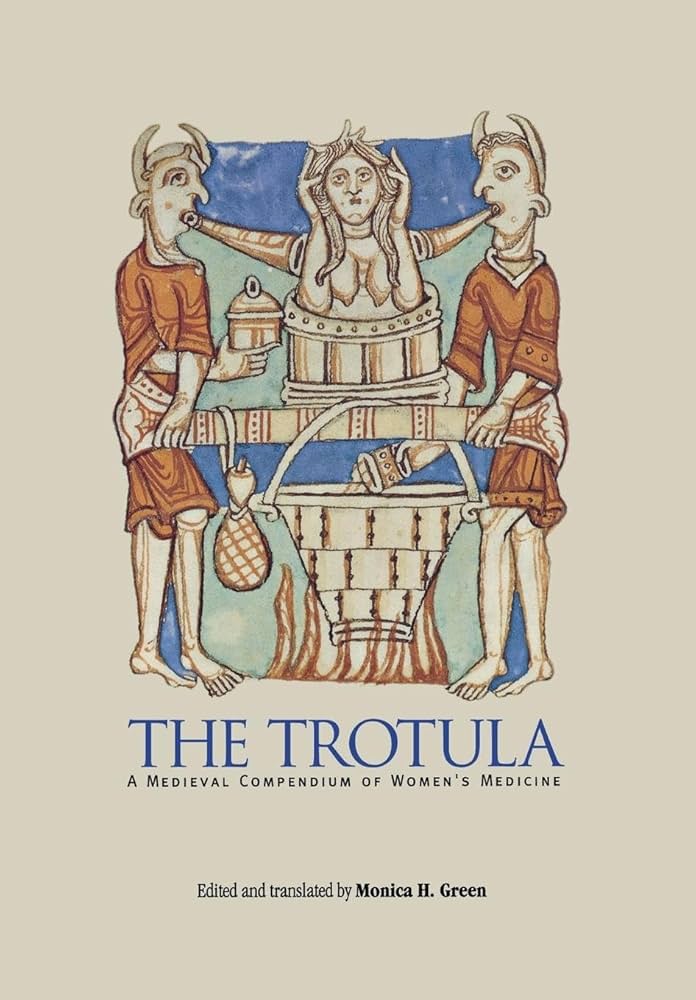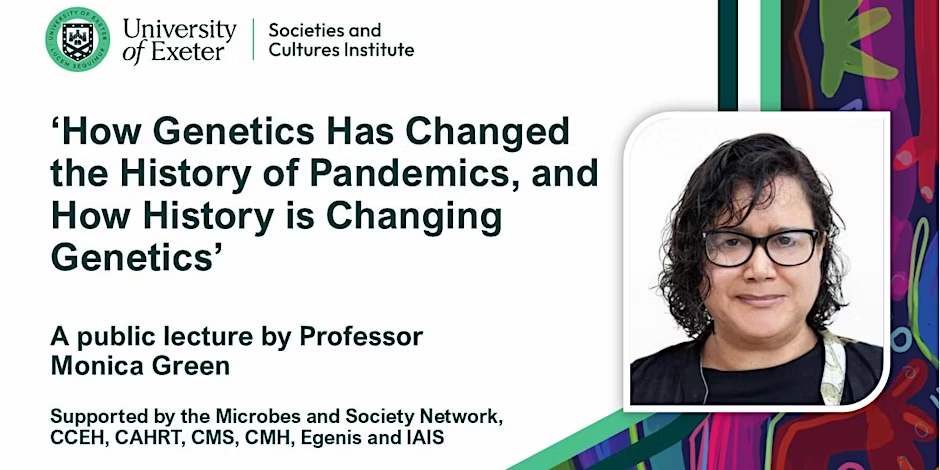
Posted by Edward Mills
12 June 2025We’re delighted to announce that Monica Green will be visiting Exeter between 16th and 18th June, as part of a series of events organised in part by the Centre for Medieval Studies (along with, among others, the Societies and Cultures Institute and the Microbes and Society Network). For many of us, Monica will need no introduction: trained as a medievalist, she is at the forefront of work in the history of disease from a global perspective, and has revolutionised our understanding of the Black Death and its transmission.
During her time in Exeter, Monica will be involved in a public lecture (Monday), a masterclass (Tuesday) and a workshop (Wednesday); for full details, see the SCI’s Eventbrite page. Ahead of her arrival — and from the midst of a busy conference! — she kindly agreed to answer a few questions about her work.
Wow, I hadn’t gone back to re-read that essay for a couple of years. I think the major changes that were needed in Medieval Studies have already been happening. Medieval Studies developed as a philologically-oriented field because it had to. That was the hard work of retrieving the written record of the past, and that in turn demanded deep expertise with specific archives and languages and cultural traditions. I think the biggest technological development that has aided the “global turn” in medieval studies is digitization. Digitization of manuscripts (which are all unique by definition) and reproductions of objects and buildings, of course, but also digitization of the scholarship that allows us to build on the generations of scholars who have gone before us. There’s an inherent democratization in all such projects, making available to many scholars or (even better) to the whole world the kinds of records that used to be accessible only to a few privileged scholars who could visit libraries and archives in person. And all those resources make it possible for us to look beyond archival and linguistic borders that previously were absolutely limiting. Watching developments in Mongol studies or the incorporation of the Pacific and the Americas into our thinking about the “medieval world” has been wondrous. After all, all these places were inhabited pre-1500, too, and all of them have histories before colonialism.


Having done my PhD in History of Science gave me confidence to simply read the early genetic work on infectious diseases, in the sense that I knew how scientific arguments were framed and how scientific disputes played out. But even before I started reading the paleopathological and then (about 20 years ago) genetic work, I had already been engaged with a lot of interdisciplinary discussions in feminist history, which involved engaging with art history, literature, anthropology, etc. One of the “methods” I’ve developed (if you can call it that) is simply to be dogged when I bump up against a piece of evidence or an interpretation and find myself saying: “This simply doesn’t make sense!” It might be that a translation seems wrong. Or that the dates don’t add up. With my work on the Black Death, it’s been that the narrative we were using to teach this pandemic didn’t make biological sense. We were invoking what I call a “Diabolus ex machina” to explain what we assumed was a sudden, inexplicable mass mortality. Well, you can do that in theater or in the movies, but not in real life!
Admission to particular events will be up to my hosts, since they had asked for these different presentations to target different students and staff among their constituents. From my perspective, I think almost everyone will find something of interest, especially in the public lecture. We (the whole world) have just gone through a devastating pandemic event, and we are looking ahead not simply to the possibility of other ones in the future, but to the certainty of global warming and many unknown sequelae as the world we have known changes. The breakthroughs that have been made in genetics–which allow us to created evolutionary understandings of organisms–means that we now have the possibility of understanding the pandemics of the past in ways that were never possible (never even conceivable!) before. In other words, we’re at an important crossroads in being better able to understand our world and the ways it changes and the ways we change it. Having a renewed sense of understanding will be enlightening for us all.

For full details of the events taking place between 16th and 18th June, and to book (free) tickets, see the Societies and Cultures Institute’s Eventbrite page.
Header image: burial of a plague victim. From Paris, BnF, MS Arabe 5847, fol. 29v.